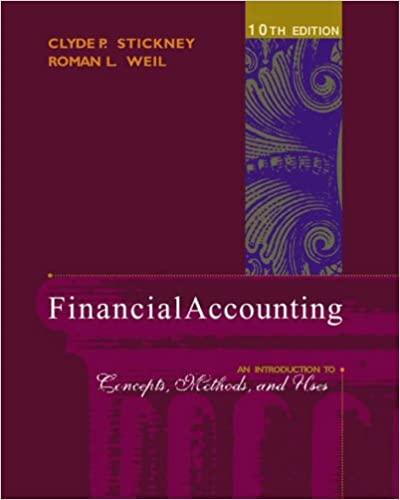Question
Following a strategy of product differentiation, Strike Company makes a high-end golf club called Smack. Strike Company presents the following data for the years 1
Following a strategy of product differentiation, Strike Company makes a high-end golf club called Smack. Strike Company presents the following data for the years 1 and 2.
|
| Year 1 | Year 2 |
| Units of Smack produced and sold | 20,000 | 21,200 |
| Selling price | $210 | $225 |
| Direct materials (square metres) | 55,000 | 60,000 |
| Direct materials costs per square metre | $18 | $24 |
| Manufacturing capacity for Smack (units) | 24,000 | 25,000 |
| Total manufacturing conversion costs | $768,000 | $850,000 |
| Manufacturing conversion costs (per unit of capacity) | $32 | $34 |
| Selling and customer service capacity (customers) | 80 | 70 |
| Total selling and customerservice costs | $436,000 | $378,000 |
| Cost per customer of selling and customerservice capacity | $5,450 | $5,400 |
Strike Company produces no defective units but it wants to reduce direct materials usage per unit of Smack in year 2. Manufacturing conversion costs in each year depend on production capacity defined in terms of Smack units that can be produced. Selling and
customerservice
costs depend on the number of customers that the customer and service functions are designed to support. Neither conversion costs or
customerservice
costs are affected by changes in actual volume. Strike Company has 46 customers in year 1 and 50 customers in year 2. The industry market size for high-end golf clubs increased 5% from year 1 to year 2.
What is the Strike Company's cost effect of growth component?
Step by Step Solution
There are 3 Steps involved in it
Step: 1

Get Instant Access to Expert-Tailored Solutions
See step-by-step solutions with expert insights and AI powered tools for academic success
Step: 2

Step: 3

Ace Your Homework with AI
Get the answers you need in no time with our AI-driven, step-by-step assistance
Get Started


